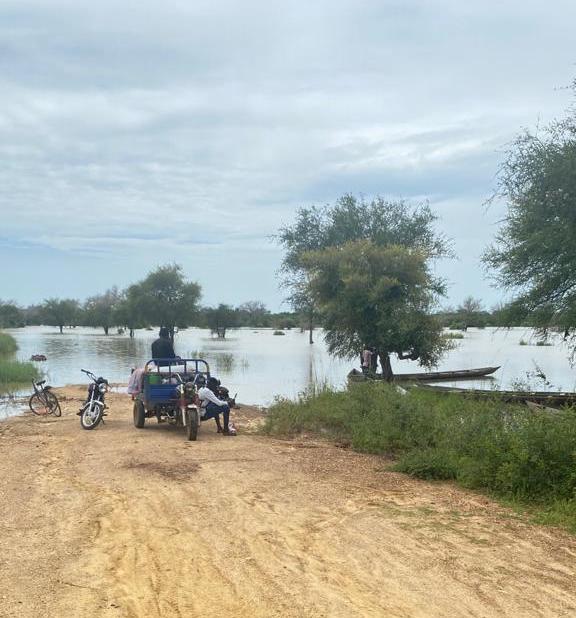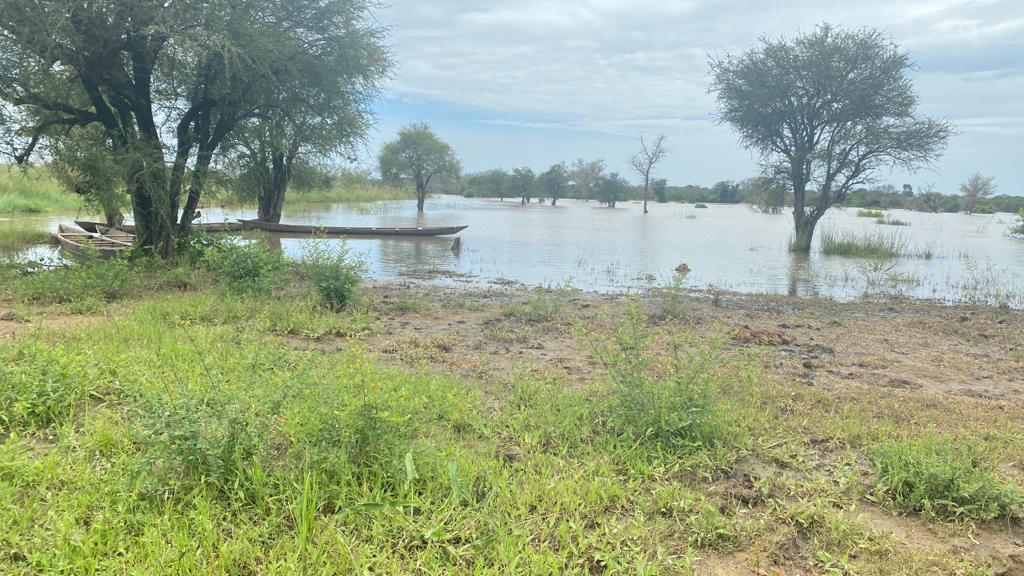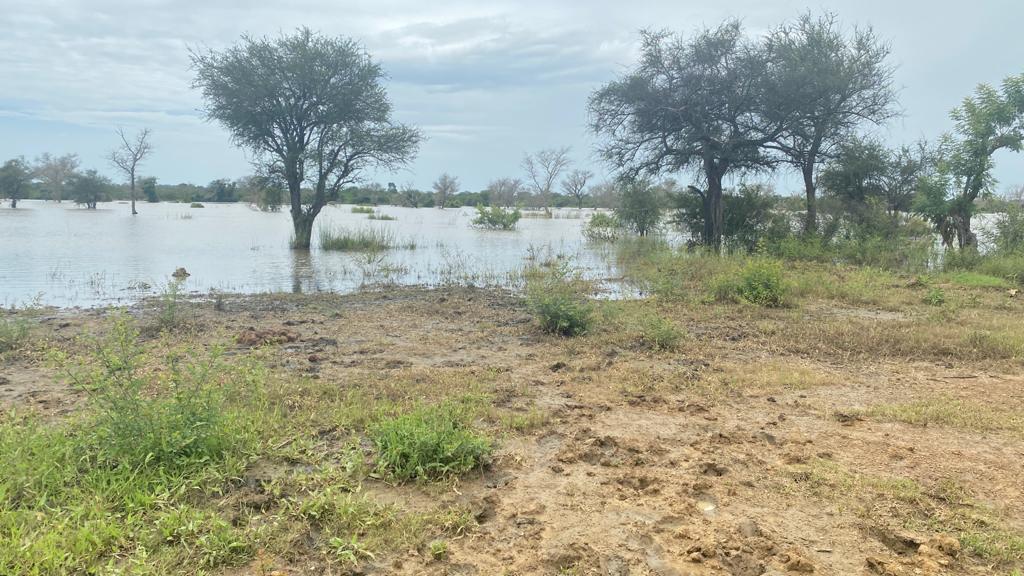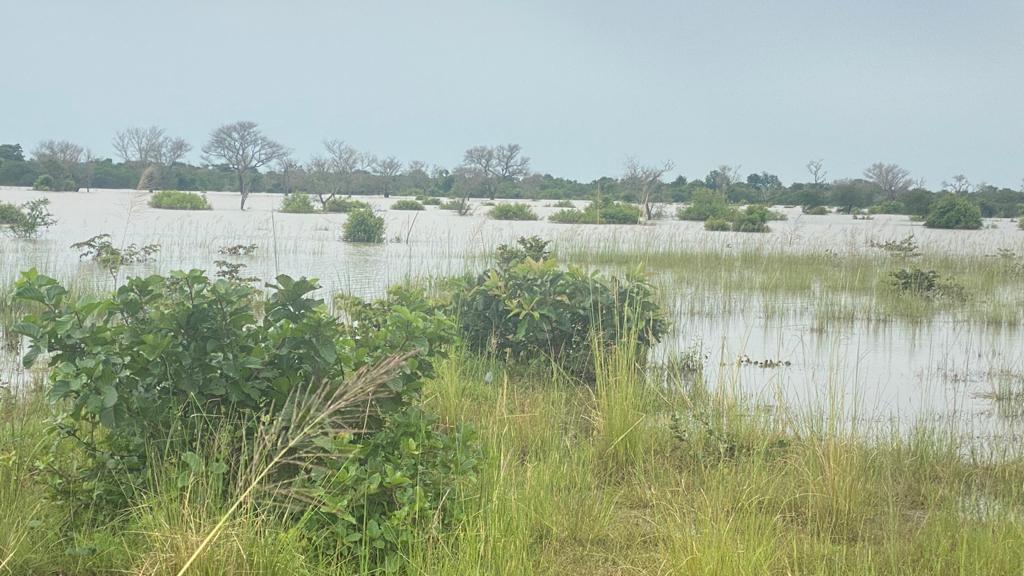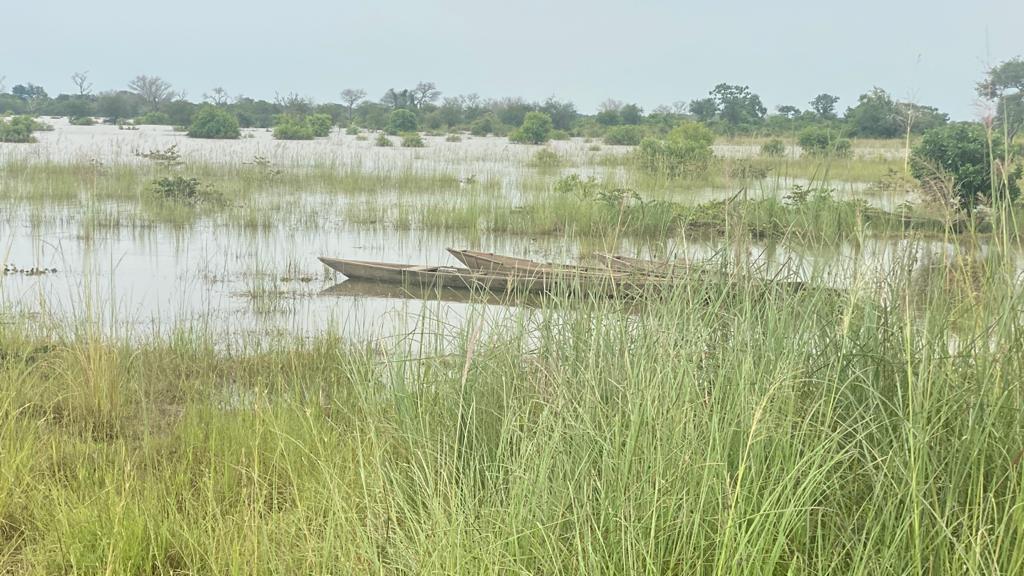Every year, Lawra experiences flooding during the rainy season caused by torrential rains or the spillage of the Bagre dam in neighbouring Burkina Faso. Most affected by these floods are the rural communities around the Black Volta river.
The river and its banks serve as a major livelihood source for the surrounding communities who fish in them, make small gardens in the dry season, and farm during the rainy season. The major source of relief comes from the central government but this help is not always enough to lift the community out of the hardships they face due to the floods – long months of hunger, lack of income, and trauma.
This year is different as the floods came very early and were completely unexpected. Three days of torrential rains in the Upper West Region and neighbouring Burkina Faso caused an early spillage of the Bagre dam flooding farms, irrigation sites, and communities. Data from the National Disaster Management Organisation (NADMO) indicates that approximately 1,605 people from Lawra, Jirapa, and Nadowli were affected by the floods, 722 farms were lost, and 336 people have been displaced. It is clear that these numbers will increase as more rains and the subsequent overflow of the dam occur. Action Through Enterprise has of course taken an interest in understanding the situation in and around Lawra and the impact the floods will have on the local communities.
Earlier in the farming season, we had delivered fertilisers to some of our beneficiaries in the more rural areas to support an increase in yields, however after talking with our dry season gardening project beneficiaries, they are already worried about how they will survive the lean season. They are still experiencing the economic hardships caused by the COVID-19 pandemic and were hoping that their harvest would cushion them, making them food secure and helping them to generate some additional income through sales. This many not actually be the case however. For example, one beneficiary Dery Raymond rushed into my office looking devastated by his garden by the Black Volta river and the state of his pepper farm. “I could not even locate my garden because it was swallowed by the water and I had to use a canoe. All I wanted to salvage were my garden fences, water hose and implements. For my crops, I knew they were all gone.”
The situation is more concerning because most of these crops were nearly ready to be harvested. The floods are making very difficult for farmers to locate their farms let alone salvaging the few remaining crops. Their only hope now is that the rains should stop, and the water recedes enough for them to pick what is available for home consumption.
What this means for many of our beneficiaries is that they are going to experience a flood induced starvation. The floods will cause a decline in food production and limit access to food. This is exacerbated by the already a bleak picture painted on food security for our communities families earlier in the year, caused by a rising inflation on staple food prices and compounding the hardships of many families. For our EducATE program, we will also need to strategise to ensure our school children will be fed as the feeding program will be directly impacted by the floods and subsequent food price hikes resulting from the decreased production and the lasting effects of the COVID pandemic.
With COP26 kicking off in Glasgow this week, and world leaders focused on the threat of climate change, we are reminded that the impact of these negotiations is very close to home. Our beneficiaries are on the frontline of the climate change emergency, and while we as an organisation are doing all we can to support the people of Lawra, we urge world leaders to step up and make bold decisions that will save our planet.
Written by Gabriel Maanibe, Director of Operations
